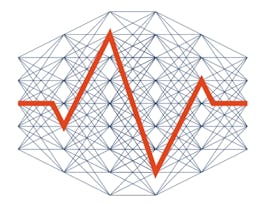AI is transforming the practice of medicine. It’s helping doctors diagnose patients more accurately, make predictions about patients’ future health, and recommend better treatments. This Specialization will give you practical experience in applying machine learning to concrete problems in medicine.


AI For Medical Treatment
This course is part of AI for Medicine Specialization



Instructors: Pranav Rajpurkar
Sponsored by Coursera Learning Team
25,262 already enrolled
(520 reviews)
Recommended experience
What you'll learn
Estimate treatment effects using data from randomized control trials
Explore methods to interpret diagnostic and prognostic models
Apply natural language processing to extract information from unstructured medical data
Skills you'll gain
- Clinical Trials
- Machine Learning
- Deep Learning
- General Science and Research
- Data Science
- Data Analysis
- Natural Language Processing
- Probability & Statistics
- Statistics
- Applied Machine Learning
- Statistical Methods
- Computer Science
- Science and Research
- Artificial Intelligence and Machine Learning (AI/ML)
- Analytics
- Statistical Analysis
- Medical Science and Research
- Artificial Intelligence
Details to know

Add to your LinkedIn profile
3 assignments
See how employees at top companies are mastering in-demand skills

Build your subject-matter expertise
- Learn new concepts from industry experts
- Gain a foundational understanding of a subject or tool
- Develop job-relevant skills with hands-on projects
- Earn a shareable career certificate


Earn a career certificate
Add this credential to your LinkedIn profile, resume, or CV
Share it on social media and in your performance review

There are 3 modules in this course
In this week, you will learn: How to analyze data from a randomized control trial, interpreting multivariate models, evaluating treatment effect models, and interpreting ML models for treatment effect estimation.
What's included
12 videos4 readings1 assignment1 programming assignment3 ungraded labs
In this week, you will learn how to extract disease labels from clinical reports, and also question answering with BERT.
What's included
10 videos1 assignment1 programming assignment3 ungraded labs
In this week, you will learn how to interpret deep learning models, and also feature importance in machine learning.
What's included
9 videos4 readings1 assignment1 programming assignment3 ungraded labs
Instructors

Offered by
Why people choose Coursera for their career




Learner reviews
520 reviews
- 5 stars
78.31%
- 4 stars
15.54%
- 3 stars
3.83%
- 2 stars
1.34%
- 1 star
0.95%
Showing 3 of 520
Reviewed on Dec 7, 2020
The assignment for the first week was out of scope for the course in my opinion. It was too much focused on a good handling of pandas which is rather difficult for people who are not experts in pandas
Reviewed on Nov 12, 2020
The assignment was very heavy. It was better to have some practical case studies to understand the implementation steps.
Reviewed on Nov 14, 2020
State of the art applications of machine learning and causal inference in the field. Great update to my skills and data scientist.
Recommended if you're interested in Data Science

Coursera Instructor Network

Stanford University

University of Illinois Urbana-Champaign

Stanford University

Open new doors with Coursera Plus
Unlimited access to 10,000+ world-class courses, hands-on projects, and job-ready certificate programs - all included in your subscription
Advance your career with an online degree
Earn a degree from world-class universities - 100% online
Join over 3,400 global companies that choose Coursera for Business
Upskill your employees to excel in the digital economy

